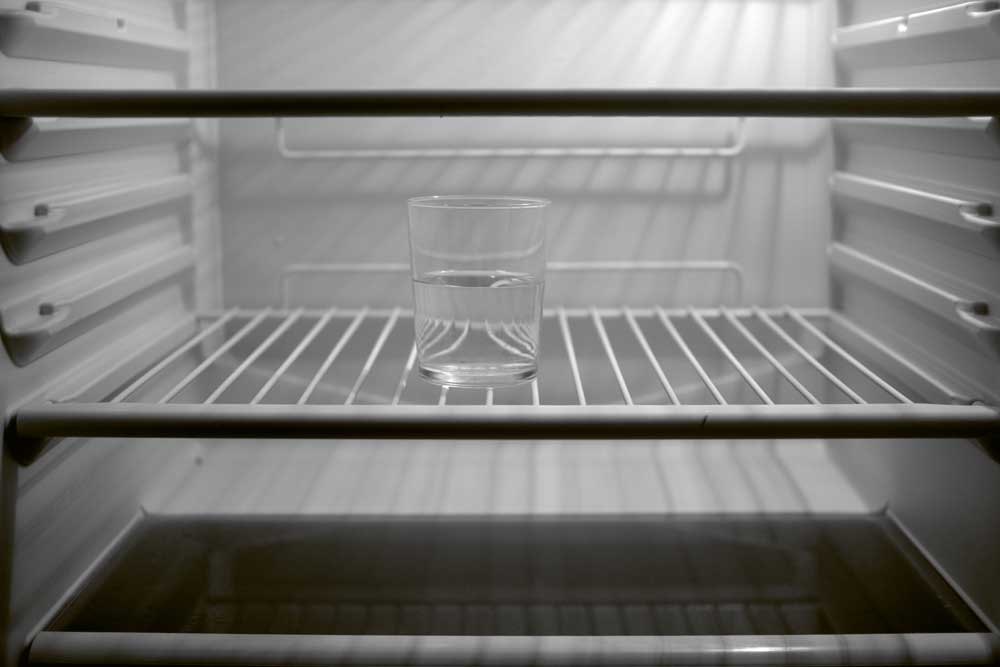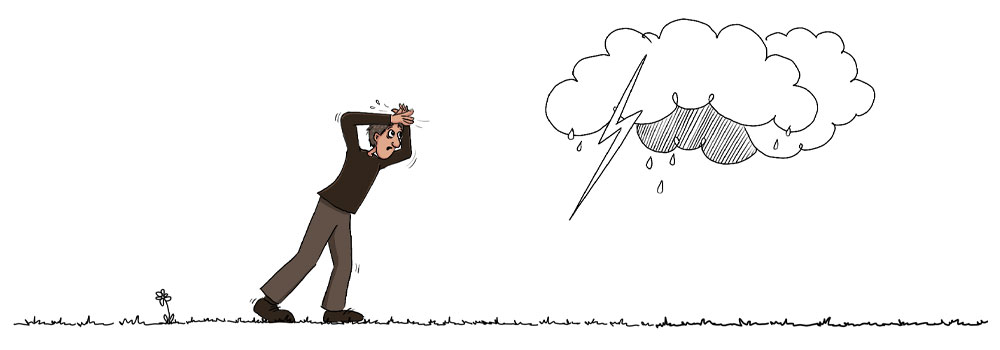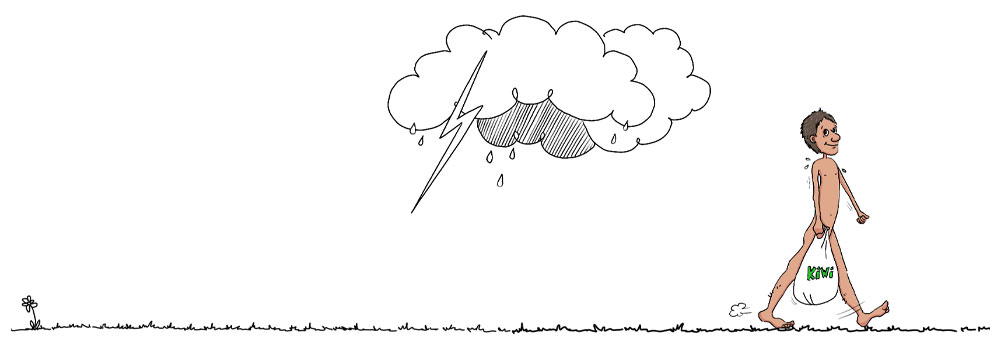Task 27 – Gratitude for everything
Task 27
Being grateful

Cotignac, France, 2015. Photo: Cecilie Hopland Jentoft
Problem
Overlooking what you have
For a long time, I was ungrateful. I thought I should have done much more. I was probably upset more often than I needed to be. I focused too much on what I had not done or experi- enced and on what I did not have. Only when I started to actively look for things in my every- day life that I could be thankful for did I feel a greater sense of well-being. Then, even more things appeared to be thankful for.
By nature, we are ungrateful. When we get a hold of something, we get a rush of seroto- nin, but the hormone disappears quickly and then we are off right away chasing our next goal driven by dopamine. Evolution has favoured hunting over happiness. I can thank the efforts of several thousand generations of human and primate ancestors for the possibility for me to sit at a computer and write this book today. It was not the ones who contentedly patted themselves on their backs who won the battles and passed on their genes. Rather, it was those who quickly raised their eyes, stared over the horizon and were relentlessly on the look-out for more.
Perhaps to redress this trait, many tribal cultures and religions have focused on thankful- ness. The chronically ungrateful patients seem to do the worst. Our ingratitude comes to us naturally. The advertisement industry feeds on this by suggesting what we lack, and should buy to get happier. Generation after generation has grown up learning to be thankful for their daily bread.
Never before have so many people had as much as we do today – material goods, a high standard of living, better and high levels of knowledge. If we wonder about anything, finding out about it is only a few keystrokes away. We live lives that were reserved for royalty only a few decades ago. Still, it is all too easy for us to focus on what we don’t have. There is nothing wrong in being ungrateful every now and then. It is a natural feeling and can awaken our desire to drive onwards. We just have to learn to balance it with gratitude. Being ungrateful is built into our genes; we have to take care of feeling gratitude ourselves.
On a scale of 1 to 6, how relevant is this issue for you?:

Solution
Gratitude
I think that in order to receive more, we first have to be grateful for what we already have. I scarcely know about any anti-depressives that work more effectively than the act of writing down three things to be grateful for every day. In the American military this is something they routinely do every evening. ‘Happy hunting’ is supposed to improve the mental well-being of the soldiers.
When we become aware of what we have, we become happier, and able to endure greater stress than when our thoughts revolve around what we lack. Maybe you could set the alarm on your telephone and find five things to be grateful for every Sunday evening? Even doing it once a week is proven to help.
When we are grateful, the happy hormones take over. We then sleep better, and we don’t let our thoughts revolve around worries as much. It is difficult to be grateful and worried at the same time.
Photographers tend to be thankful people. Maybe because a photograph is often a picture of gratitude. It seems necessarily more natural for us to focus the camera on what we have and appreciate than what we are lacking. This focus on noticing what we have is built into photography. The picture is an object of gratitude in itself. It is when you are grateful for what you have that you will receive more. This also applies to photographs.
PHOTO ASSIGNMENT:
Find objects or people you are grateful for.
Put them in an interesting light, photograph and thank them!
On a scale of 1 to 6, how useful was this task for you?
BOOK SUGGESTION: Thanks A Thousand: A Gratitude Journey by A.J. Jacobs. Also see ted.com.

❞ Every day, think as you wake up, today I am fortunate to be alive. I have a precious human life I am not going to waste it.
Dalai Lama
❞ Do not indulge in dreams of having what you have not, but reckon up the chief of the blessings you do possess, and then thankfully remember how you would crave for them if they were not yours
Marcus Aurelius
❞ Be thankful for what
you have; you’ll end up having more. If you concentrate on what you don’t have, you will never, ever have enough.
Oprah Winfrey
[note_editor]

